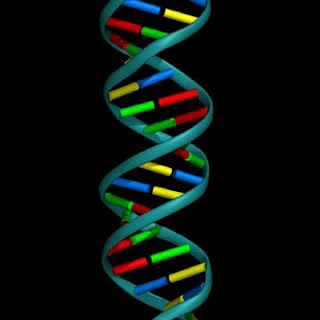The Scientific American provided us with another reason to avoid masturbating when committing a crime in a story about how Danish scientists have utilized DNA from a 4,000-year-old tuft of hair to come up with a basic description of the man it was once attached to. They can actually spot variations in the genes that mark if a person will have features like brown hair or blue eyes, and this could be a big step in forensic investigations as a means for developing a basic description of a perpetrator if he leaves any DNA behind at a crime scene. Now, this isn't a magic wand by any means. Don't expect forensics experts to find spit on the ground at a crime scene and come out with a detailed rendering of the person's face.
Instead, this type of research might help to narrow down the fields of search in an investigation. So if the police were investigating a sexual assault, for example, and by studying the variations in the DNA collected at the scene discovered the suspect had blond hair they could at least rest assured that Ben Rothleisberger didn't have anything to do with it this time (zing! I just dropped some topical humor on your ass).
A question raised by the article, however, is the matter of ethics when it comes to using this approach to forensics investigations. The article doesn't really get into exactly what the ethical dilemma comes from, but I'd imagine it's because DNA is only a starting point for our development, and environmental factors also play a role. Going back to our sexual assault case, let's say that the DNA investigation found that the person in question had a genetic proclivity for being an alcoholic. Well, this might mean the suspect is a fall-down drunk, or it could mean that as someone who likely has alcoholism running rampant in his family, the suspect has avoided drinking anything stronger than Jolt just to avoid ending up like the rest of their family. So if an investigator were to take too much stock in the alcoholic tendencies, they might get stuck on a theory and see any drunk walking down the street as a suspect.
On the flip side, however, aren't we already in murky water when it comes to criminal investigations? My (potentially wrong) understanding of psychological profiling is to use what is known about the trends of people who have committed crimes in the past in order to get a sense for how/why a person would commit a current crime and use that knowledge as a way to find their suspect. Well it seems to me that there is a lot of educated guesswork involved here, so what's the problem with supplying more information through DNA research so that the guess is that much more educated? Should the findings from investigating DNA be the end-all be-all of the investigation? Of course not. But, used properly, it could be very useful as one piece of the whole puzzle. Or at the very least it could take racial profiling to a new level.



No comments:
Post a Comment